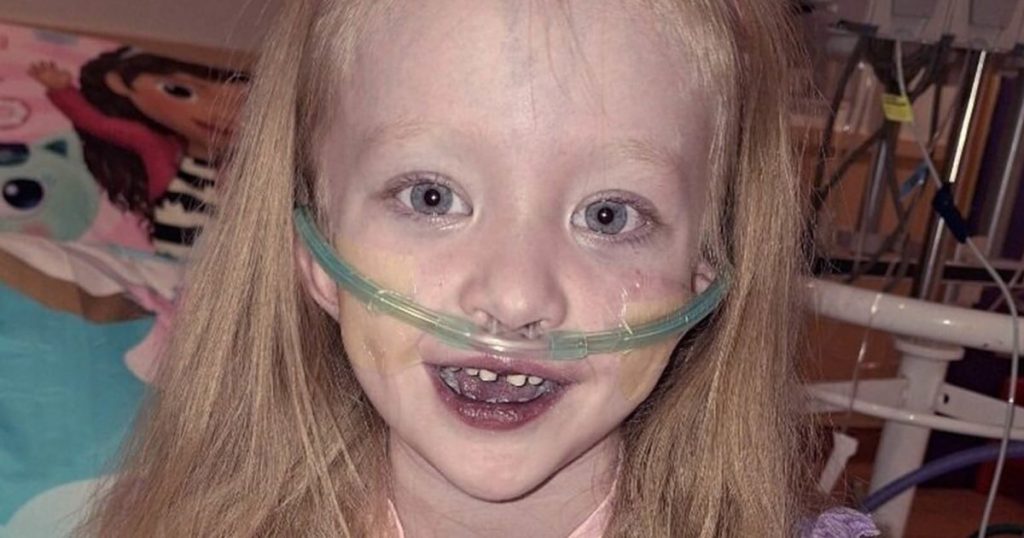Harper Ryals was a seemingly healthy child until the age of 2 when her parents noticed her fingertips had turned blue, indicating a lack of oxygen. Testing eventually diagnosed Harper with a rare disease called hereditary hemorrhagic telangiectasia (HHT), which causes arteriovenous malformations (AVMs) in the lungs. Harper had thousands of tiny AVMs in her lungs, affecting her ability to breathe properly. Despite undergoing tests and living with oxygen support, Harper’s overall health deteriorated as her lungs were the primary concern for doctors. The family considered a double-lung transplant as a possible solution, but the risks associated with the surgery were daunting.
After facing numerous health challenges, Harper remained resilient and continued to enjoy playing video games and interacting with others. With worsening migraines and headaches due to low oxygen levels, Harper and her family made the decision to relocate to Texas Children’s Hospital in Houston where she was evaluated for a double-lung transplant. Eventually, Harper was listed for a transplant and spent 74 days in the ICU waiting for suitable lungs. In April 2024, Harper successfully underwent the transplant, bringing hope for improved health and quality of life. The surgery was crucial as the AVMs in her lungs prevented proper oxygenation, leading to potentially life-threatening complications.
Harper’s rare condition, HHT, causes abnormal connections between arteries and veins, leading to AVMs that can affect various organs, including the lungs. In Harper’s case, the presence of micro-AVMs throughout her lungs necessitated a double-lung transplant as the only treatment option. Dr. Tina Melicoff from Texas Children’s Hospital highlighted the rarity of lung transplants, especially in children, and emphasized the importance of having specialized pediatric transplant centers. The successful transplant allowed Harper to receive healthy lungs without the genetic mutation, ensuring adequate oxygen saturation.
Despite the challenges associated with anti-rejection medications and the need for continued monitoring of the AVM in her brain, Harper is thriving post-transplant. She no longer requires oxygen support, can engage in physical activities, and is excelling in her developmental milestones. The family expresses gratitude towards the donor’s family for their generous decision to donate organs, which saved Harper’s life. While there are uncertainties regarding the longevity of transplanted lungs, the focus remains on Harper’s day-to-day health and well-being. Dr. Melicoff acknowledges the importance of ongoing medical care to ensure Harper’s continued success and overall wonderful progress post-transplant.
Harper’s journey serves as a testament to her resilience and strength in overcoming significant health challenges, including a rare genetic mutation and the need for a life-saving transplant. With the support of her family, medical team, and the generosity of organ donors, Harper has the opportunity to lead a fulfilling life despite the obstacles she has faced. Through her experience, Harper inspires hope and underscores the importance of organ donation in saving lives. As she continues to thrive and grow, Harper serves as a beacon of courage and perseverance in the face of adversity, embodying the resilience of the human spirit in overcoming life’s greatest challenges.


